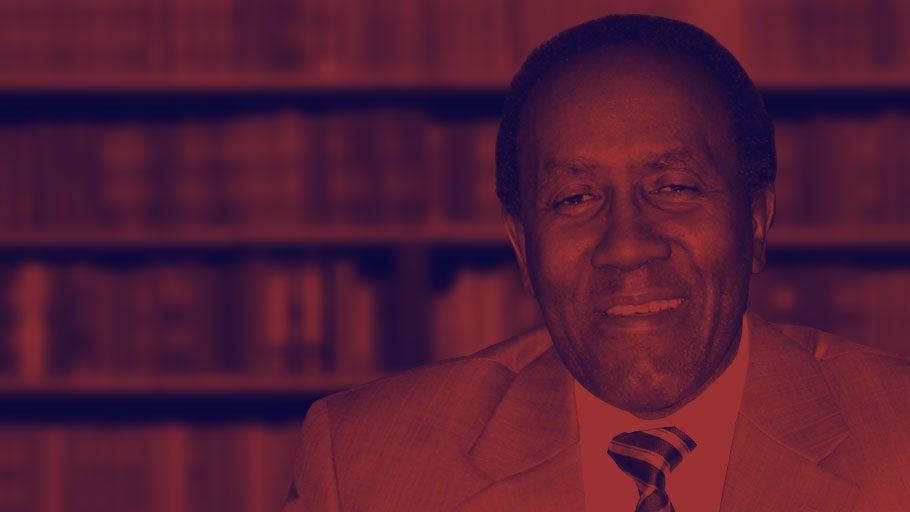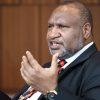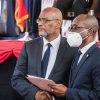Fifty-two years in the life of a nation is not a long time. In comparison to Chinese civilization, Jamaica’s fifty-two years is like an evening past. Jamaica celebrates its independence in the year 2014, marking one hundred years since the outbreak of World War 1 in which over 16 million lives were lost. After 100 years, as the former American Secretary of State Madeline Albright recently observed, “the world is still in a mess, much of it self-inflicted. With more adroit diplomacy, the civil war in the Ukraine could have been avoided.
The Obama administration and its Secretary of State, John Kerry, spent endless hours trying to agree on a two state solution between the Israelis and the Palestinians. What is taking place in Gaza has long since been outlawed by the Geneva Convention. The bombing of civilian populations only became fashionable during World War 11.
The death toll and the dislocation continue to pile up in Syria and with the rise of ISIS, clear lines of state demarcation are in the process of being redrawn. After the loss of approximately 4,400 American lives and 32,000 seriously wounded, tens of thousands of Iraqi civilians and a trillion dollars in expenditures, the religious fissures in Iraq between Shiite and Sunni are tearing that failed state apart. The Kurds are using the new crisis to make the case for an independent Kurdistan.
After fifty-two years of independence, Jamaica is not at war with itself but we are not at peace with each other. Independence is a time for merriment and balls but it is also a time for reflection. Where are we as a nation? What are the miss-steps that occurred over the five plus decades? How bright or how bleak is the future?
An analysis of a country invariably leads to the examination of its political economy. For the first ten years of independence, the Jamaican economy was in an expansionary mode as the bauxite-alumina production stimulated robust economic growth. The increase in governmental revenues enabled the state to expand educational access. The expansion of the state and the light manufacturing base led to the growth of the middle class and the skilled working class.
If the sixties was a glorious decade, the seventies was a troubled decade. The pace and size of the internal migration could not be absorbed by the insufficiency of the jobs being created in the metropolitan area of Kingston and St. Andrew. Britain had curtailed their open door policy and the bottling up of surplus labor in the capital of Kingston began manifesting itself in the form of the “Rude Boy”. The fragile social fabric was easily rent asunder by the politicizing and arming of urban gangs. Jamaica went to war with itself. Prior to the 1980 election, the homicide rate in the country was far from astronomical. After the election of 1980, the homicide rate jumped from approximately 350 to over 800. Culturally, a certain segment of the society no longer recognized that life was sacrosanct. In the words of the English philosopher, Thomas Hobbes, life had become nasty, short and brutish.
The intra-class squabbles and the inter-class dialectic created a high degree of class polarization. The political opportunism at one point in the 1970s was out of control. We have managed to step back from the brink. Both political parties saw the foolhardiness of the political violence and the parliament and civil society have put together institutions dealing with the electoral process that have enhanced the democratic process. Citizens, rich and poor, now see the destructiveness of political violence and the society can point to the 2011 election with great pride that there was a changing of the guard, a transfer of power with an insignificant amount of bloodshed.
The nigh mortal damage to the bodypolitics was not just in the form of political violence but in the poor economic performance for decades. The state and the business community must take the full responsibility for that failure.
In a democratic capitalist society, there must be a high level of cooperation among state actors, the owners of the means of production and the workers. Decisions dealing with interest rates, foreign exchange, export-import, deficit spending and surplus revenues all have a profound impact on economic growth. The record is miserable and what is critical at this juncture is that there is an urgent need for a new pathway. Jamaica desperately needs economic growth, tax revenues, a reduction of the debt, a productive labor force and an export strategy.
Specialists who have a knowledge of Jamaican business practices and state actors do not speak highly of either the business class or state actors. That is, hopefully, a phenomenon of the past. Under the terms of the IMF agreement, Jamaicans have no choice but to “ kotch wi foot and hold wi belly”. In the second decade of the twentieth century, even more is required of the business community, state actors, media and civil society. We were instrumental in digging the grave. We have to work ourselves out of it.
Jamaicans are not reknown as gravediggers but as record breakers. This is where getting the political economy right is indispensable to improving the standard of living of the majority and begin the steep climb of embracing the marginalized and the socially excluded.
Beginning in the 1970s, there was much ignorance regarding economic development. After fifty-two years, hopefully, we are more enlightened and will continue to lower the debt and to expand exports. There are signs of economic improvement even though the devaluation of the Jamaican dollar has augmented hardships in certain segments of the society. At this juncture political and business leaders must empirically articulate the progress that the society is making and how the entire society will benefit eventually from the current sacrifice.















